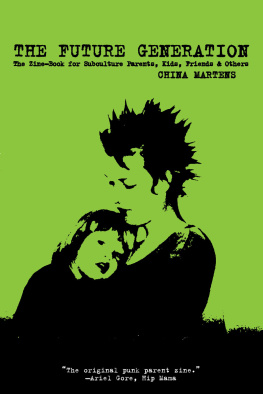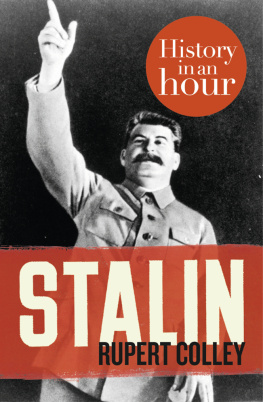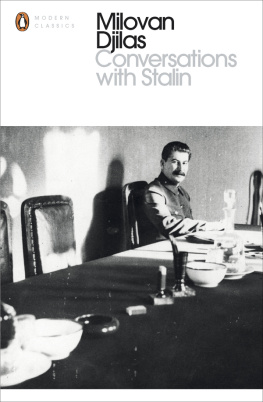Ludo Martens - Another View of Stalin
Here you can read online Ludo Martens - Another View of Stalin full text of the book (entire story) in english for free. Download pdf and epub, get meaning, cover and reviews about this ebook. year: 1996, publisher: EPO, genre: Politics. Description of the work, (preface) as well as reviews are available. Best literature library LitArk.com created for fans of good reading and offers a wide selection of genres:
Romance novel
Science fiction
Adventure
Detective
Science
History
Home and family
Prose
Art
Politics
Computer
Non-fiction
Religion
Business
Children
Humor
Choose a favorite category and find really read worthwhile books. Enjoy immersion in the world of imagination, feel the emotions of the characters or learn something new for yourself, make an fascinating discovery.

- Book:Another View of Stalin
- Author:
- Publisher:EPO
- Genre:
- Year:1996
- Rating:3 / 5
- Favourites:Add to favourites
- Your mark:
- 60
- 1
- 2
- 3
- 4
- 5
Another View of Stalin: summary, description and annotation
We offer to read an annotation, description, summary or preface (depends on what the author of the book "Another View of Stalin" wrote himself). If you haven't found the necessary information about the book — write in the comments, we will try to find it.
Another View of Stalin — read online for free the complete book (whole text) full work
Below is the text of the book, divided by pages. System saving the place of the last page read, allows you to conveniently read the book "Another View of Stalin" online for free, without having to search again every time where you left off. Put a bookmark, and you can go to the page where you finished reading at any time.
Font size:
Interval:
Bookmark:

Foreword
That a famous Soviet dissident, now living in `reunited' Germany, a man who in his youth was so fanatically anti-Stalin that he planned a terrorist attack against him, who filled entire books with vehement denunciation of Stalin's political line in every possible way, that such a man would, in his old age, pay homage to Stalin is remarkable.
Many who consider themselves Communist have not shown such courage. It is very difficult to raise one's feeble voice against the torrents of anti-Stalin propaganda.
Unfortunately many Communists do not feel at ease on this battlefield. Everything that sworn enemies of Communism had claimed for thirty-five years was supposedly confirmed by Khrushchev in 1956. Since then, angry, unanimous condemnations of Stalin have come from the Nazis and the Trotskyists, from Kissinger and Brzezinski, from Khrushchev and Gorbachev, and many others, each adding to the `proof'. To defend the historic rle of Stalin and the Bolshevik Party becomes unthinkable, even monstrous. And most people who firmly oppose the murderous anarchy of world capitalism have become intimidated.
Today, for a man such as Zinoviev, seeing the destructive folly that has taken hold of the ex-Soviet Union, with its trail of famine, unemployment, criminality, misery, corruption and inter-ethnic wars, has led to the reassessment of prejudices firmly held since adolescence.
It is clear that, throughout the world, those who wish to defend the ideals of Socialism and Communism must at least do the same. All Communist and revolutionary organizations across the globe must re-examine the opinions and judgments that they have formed since 1956 about Comrade Stalin's work. No one can deny the evidence: when Gorbachev succeeded in eradicating all of Stalin's achievements, crowning thirty-five years of virulent denunciations of `Stalinism', Lenin himself became persona non grata in the Soviet Union. With the burial of Stalinism, Leninism disappeared as well.
Rediscovering the revolutionary truth about this pioneer period is a collective task that must be borne by all Communists, around the world. This revolutionary truth will arise by questioning sources, testimony and analyses. Clearly, the aid that might be offered by Soviet Marxist-Leninists, sometimes the only ones with direct access to sources and to witnesses, will be vital. But today they work under very difficult conditions.
Our analyses and reflections on this subject are published in this work, Another view of Stalin. The view of Stalin that is imposed on us daily is that of the class that wants to maintain the existing system of exploitation and oppression. Adopting another view of Stalin means looking at the historic Stalin through the eyes of the oppressed class, through the eyes of the exploited and oppressed.
This book is not designed to be a biography of Stalin. It is intended to directly confront the standard attacks made against Stalin: `Lenin's Will', forced collectivization, overbearing bureaucracy, extermination of the Old Bolshevik guard, the Great Purge, forced industrialization, collusion between Stalin and Hitler, his incompetency during World War II, etc. We have endeavored to deconstruct many `well-known truths' about Stalin, those that are summarized --- over and over --- in a few lines in newspapers, history books and interviews, and which have more or less become part of our unconscious.
`But how is it possible', asked a friend, `to defend a man like Stalin?'
There was astonishment and indignation in this question, which reminded me of what an old Communist worker once told me. He spoke to me of the year 1956, when Khrushchev read his famous Secret Report. Powerful debates took place within the Communist Party. During one of these confrontations, an elderly Communist woman, from a Jewish Communist family, who lost two children during the war and whose family in Poland was exterminated, cried out:
`How can we not support Stalin, who built socialism, who defeated fascism, who incarnated all our hopes?'
In the fiery ideological storm that was sweeping the world, where others had capitulated, this woman remained true to the Revolution. And for this reason, she had another view of Stalin. A new generation of Communists will share her view.
Introduction: The importance of Stalin
On August 20, 1991, Yanayev's ridiculous coup d'tat was the last step in eliminating the remaining vestiges of Communism in the Soviet Union. Statues of Lenin were torn down and his ideas were attacked. This event provoked numerous debates in Communist and revolutionary movements.
Some said it was completely unexpected.
In April 1991, we published a book, L'URSS et la contre-rvolution de velours (USSR: The velvet counter-revolution),
.
Ludo Martens, L'URSS et la contre-rvolution de velours (Antwerp: EPO, 1991).
which essentially covers the political and ideological evolution of the USSR and of Eastern Europe since 1956. Now that Yeltsin has made his professional coup d'tat and that he has vehemently proclaimed capitalist restoration, our analysis still stands.
In fact, the last confused confrontations between Yanayev, Gorbachev and Yeltsin were mere convulsions, expressing decisions made during the Twenty-Eighth Congress in July 1990. We wrote at the time that this congress `clearly affirms a rupture with socialism and a return to capitalism'.
.
Ibid. , p. 215.
A Marxist analysis of the events that occurred in the Soviet Union had already led in 1989 to the following conclusion:
`Gorbachev ... is implementing a slow and progressive, but systematic, evolution to capitalist restoration .... Gorbachev, his back to the wall, is seeking increasing political and economic support from the imperialist world. In return, he allows the West to do as it pleases in the Soviet Union.'
.
Ibid. , p. 186.
A year later, at the end of 1990, we concluded our analysis as follows:
`Since 1985 Gorbachev has not firmly and consistenly defended any political position. In waves, the Right has attacked. Each new wave has dragged Gorbachev further to the Right. Confronted by further attacks by nationalists and fascists, supported by Yeltsin, it is not impossible that Gorbachev will again retreat, which will undoubtedly provoke the disintegration of the CPSU and the Soviet Union.'
.
Ibid. , p. 253.
`The Balkanization of Africa and of the Arab world has ensured ideal conditions for imperialist domination. The more far-seeing in the West are now dreaming beyond capitalist restoration in the USSR. They are dreaming of its political and economic subjugation.'
.
Ibid. , p. 245.
It is no accident that we recall these Marxist-Leninist conclusions from 1989 and 1990. The dynamiting of statues of Lenin was accompanied by an explosion of propaganda claiming victory over Marxism-Leninism. However, only the Marxist analysis was correct, was capable of clarifying the real social forces working under the demagogic slogans of `freedom and democracy' and `glastnost and perestroika'.
In 1956, during the bloody counter-revolution in Hungary, statues of Stalin were destroyed. Thirty-five years later, statues of Lenin have been reduced to dust. The dismantling of statues of Stalin and Lenin marks the two basic breaks with Marxism. In 1956, Khrushchev attacked Stalin's achievements so that he could change the fundamental line of the Communist Party. The progressive disintegration of the political and economic system that followed led to the final break with socialism in 1990 by Gorbachev.
Of course, the media hark on every day about the clear failure of Communism around the world. But we must reiterate that, if there was a failure in the Soviet Union, it was a failure of revisionism, introduced by Khrushchev thirty-five years ago. This revisionism led to complete political failure, to capitulation to imperialism and to economic catastrophe. The current eruption of savage capitalism and of fascism in the USSR shows clearly what happens when the revolutionary principles of Marxism-Leninism are rejected.
Next pageFont size:
Interval:
Bookmark:
Similar books «Another View of Stalin»
Look at similar books to Another View of Stalin. We have selected literature similar in name and meaning in the hope of providing readers with more options to find new, interesting, not yet read works.
Discussion, reviews of the book Another View of Stalin and just readers' own opinions. Leave your comments, write what you think about the work, its meaning or the main characters. Specify what exactly you liked and what you didn't like, and why you think so.









